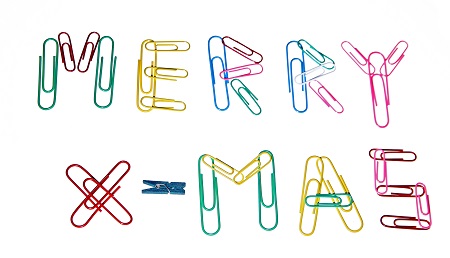 For employers all over the United Kingdom, the run up to Christmas is one of the busiest times of the year. Meeting tight deadlines, fulfilling large orders, launching seasonal promotions, and running the workplace while some staff are on leave are among the most common concerns for office-based employers. In addition, this is also a time to reward your team for their great performance and dedication, whether that means treating them to a nice office lunch or dinner or giving out Christmas bonuses or gifts. However, some of these actions may have tax repercussions. Here’s a quick guide to enjoying a (mostly) tax-free Christmas in your workplace.
For employers all over the United Kingdom, the run up to Christmas is one of the busiest times of the year. Meeting tight deadlines, fulfilling large orders, launching seasonal promotions, and running the workplace while some staff are on leave are among the most common concerns for office-based employers. In addition, this is also a time to reward your team for their great performance and dedication, whether that means treating them to a nice office lunch or dinner or giving out Christmas bonuses or gifts. However, some of these actions may have tax repercussions. Here’s a quick guide to enjoying a (mostly) tax-free Christmas in your workplace.
Merry Christmas: The Tax-Free Way
Like other taxation matters, Christmas-related tax deductions and exemptions are governed by the guidelines outlined by HM Revenue & Customs. Certain gifts or events will have to be reported and will be subject to National Insurance Contributions, whereas others are tax-exempt. Generally speaking, the main criterion used to distinguish taxable from tax-free actions is whether a particular gift or event can be considered staff entertainment. Staff entertainment is defined by HM Revenue & Customs as any free or subsidised hospitality activities, including but not limited to meals, accommodation, tickets to sporting events, music concerts, theatres, or night clubs, business gifts, and any entertainment that is exclusively provided to company directors or business partners.
As an employer, you can claim VAT and tax relief of this type of expenses, as long as entertainment is provided to employees only. Entertaining sub-contractors, former employees, clients, or shareholders would be considered business entertainment instead of staff entertainment, and no VAT or tax relief can be claimed on this type of business activities. It is also important to note that those who operate as sole traders, business partnerships, or limited liability partnerships cannot claim tax relief on this type Christmas-related entertainment, as legally they are the same entity as their business.
The above are only general guidelines that are subject to certain exceptions. Below we outline some tax efficient ways in which a company can be generous to its employees during the Christmas season.
Christmas gifts
As an employer, you can show your appreciation for your staff’s work with a number of Christmas gifts that are tax and NIC-exempt. HM Revenue & Customs has deemed trivial benefits non-taxable. Generally speaking, trivial benefits are perishable items that cannot be re-sold, such as tea, coffee, soft drinks, a bottle of wine, flowers, a box of chocolates, a turkey, etc., as long as their cost is considered reasonable. Deciding what is reasonable and what isn’t may be tricky, since there is no upper limit that applies to the cost of Christmas gifts. If in doubt, contact the HMRC employer helpline on 0300 200 3200.
As for vouchers or gift certificates that can be redeemable for cash, they are always taxable and subject to National Insurance Contributions regardless of their cash value, as they are considered a form of employment income.
Christmas bonuses
Christmas bonuses are deemed part of an employee’s annual earnings, and as such, they must be reported and are subject to Class 1 National Insurance Contributions and to all other applicable PAYE deductions. However, some tax exemptions apply if you decide to reward your staff with a Christmas bonus in the form of consumable goods. This is the case of any items given to employees who earn at an annual rate of up to £8,500, regardless of the item’s resale value.
On a side note, cash prizes given to employees in recognition of their performance can be tax exempt as long as their value does not exceed £25 per employee. Further information can be found at the HM Revenue & Customs website, under the ‘Encouragement Awards’ section.
Office Christmas parties
Tax relief is available on the cost of organising Christmas parties or similar events for employees. However, for an event to qualify it must open to all staff, be an annual event, and the maximum expenditure should not exceed £150 per employee (VAT included). No reporting obligations apply to events where employees earn at a rate of up to £8,500 / year. Employers may also include the cost of accommodation and taxis as part of the Christmas party expenses, as well as the costs of inviting the spouses or partners of their employees, as long as the total cost does not exceed the £150 threshold.
If the cost of your annual Christmas party exceeds the threshold, expenses will have to be individually reported using form P11D (one per employee) or as a lump sum via a PAYE settlement agreement.
Further reading:
Corporate Christmas Gift Giving Guide
How to get your Business Ready for Christmas
Office Christmas Party Dress Code
Sources:
http://www.grant-thornton.co.uk/PageFiles/3602/Christmas_parties_and_gifts.pdf
http://www.hmrc.gov.uk/manuals/eimanual/eim21690.htm
http://www.icaew.com/en/archive/about-icaew/newsroom/press-releases/2013-press-releases/enjoy-a-christmas-party-tax-free
https://www.gov.uk/expenses-benefits-social-functions-parties/overview
https://www.gov.uk/expenses-and-benefits-entertainment/whats-exempt
http://www.hmrc.gov.uk/manuals/eimanual/EIM01040.htm

